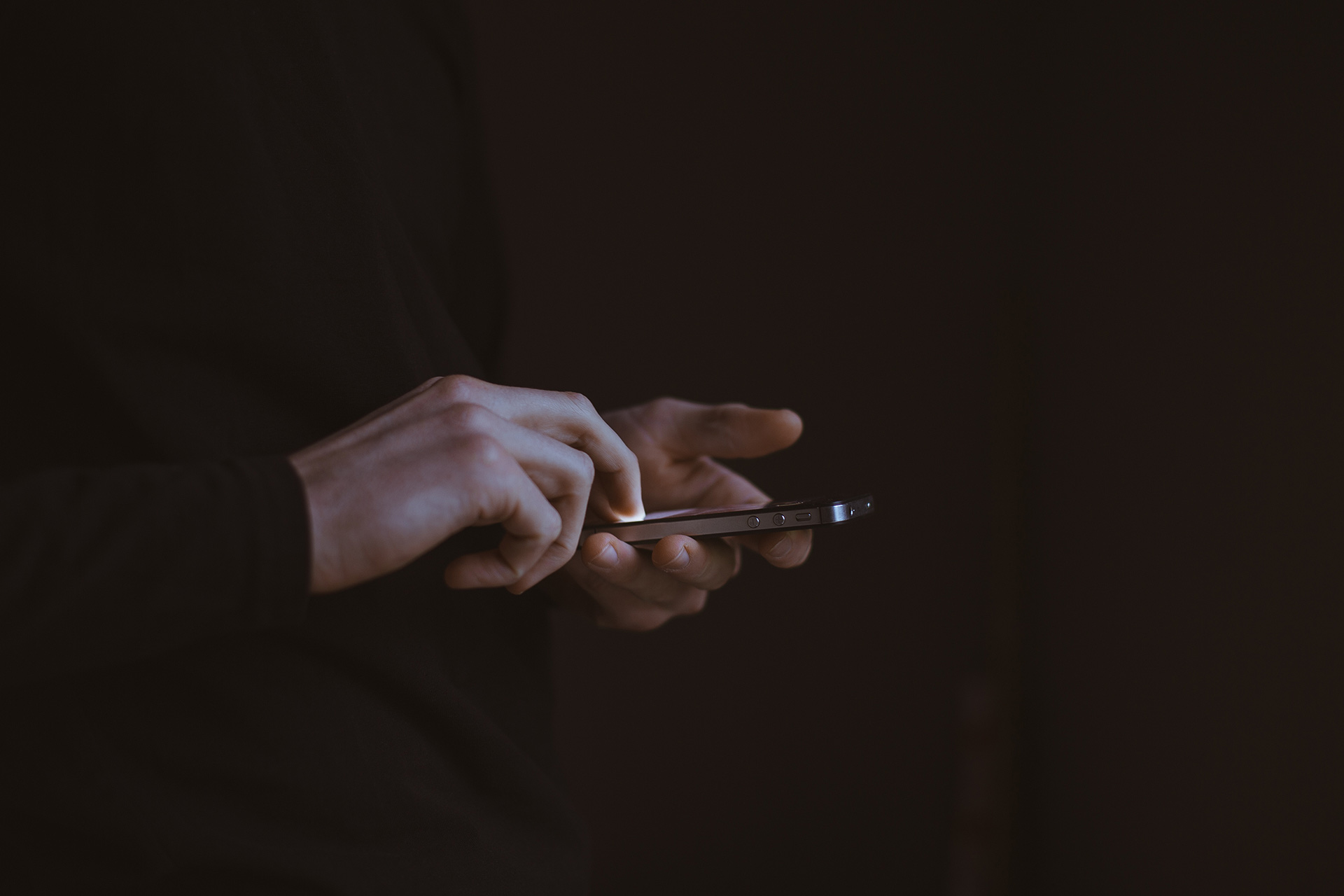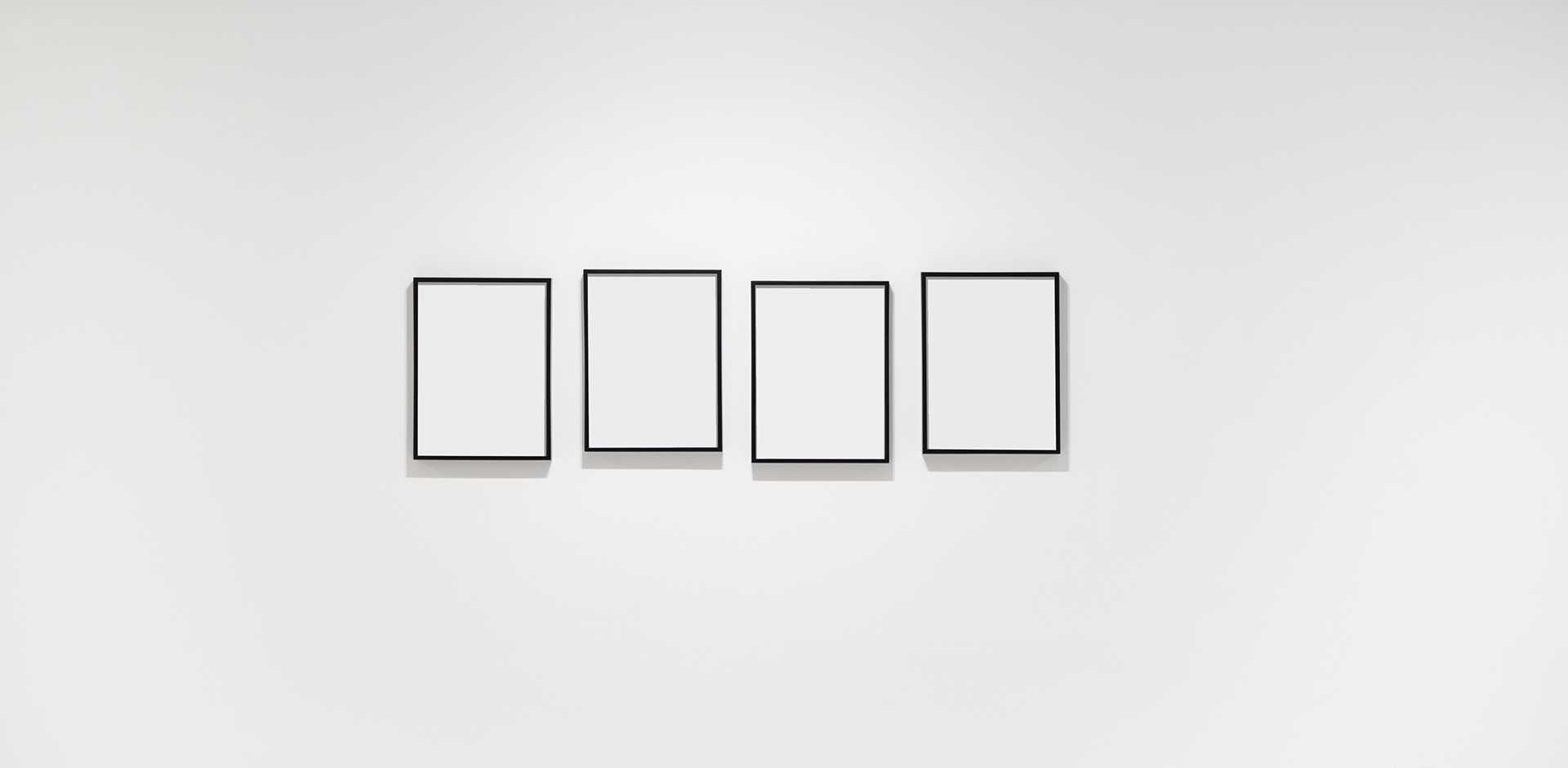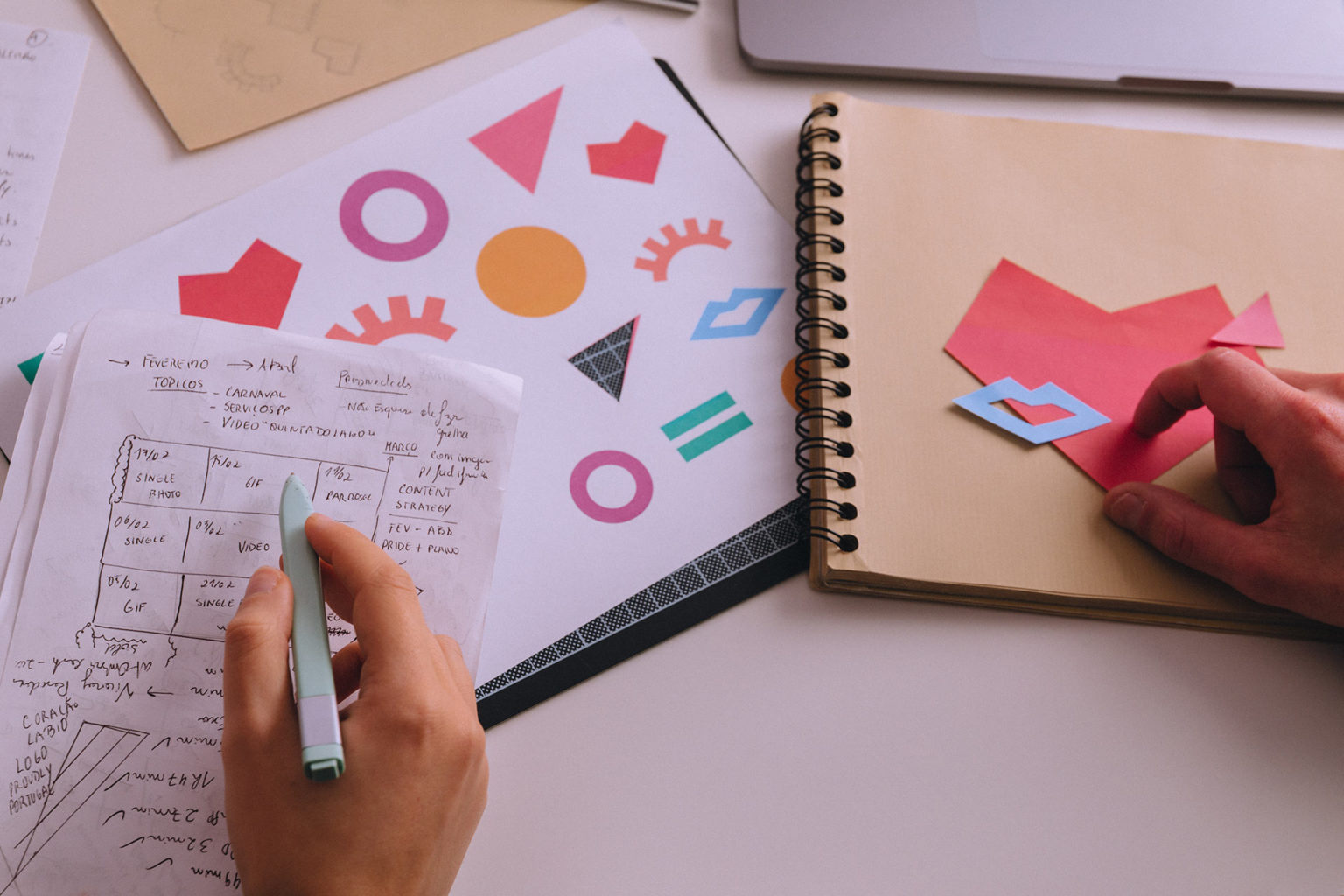Be a minimalist, maximise simplicity. Have you ever paused to consider how your ideas are influenced by something you saw on Instagram or documentary you watched on Netflix? How the scarcity of time gets you stuck in a loop, hindering your potential for reinvention? We must log out and embody our own expectations. Move closer towards the analogue version of life and listen to the world around us. Let's embrace Digital Minimalism!
Digital Minimalism – A Quest in Retrospective

Hi there, long time no see.
Incredibly enough, my first and only article for the Lab Report was written one year ago. Since we are officially in September again, I thought it would be good to revisit some of the topics on which I dwelled about. Let’s change the status quo – second article, here we go!
On my last quest, I learned and shared the importance of silence in creative areas. A quiet moment in space where you embrace calmness, without much thought, to escape your physical and noisy world.
From Cal Newport’s book “Deep Work” to “Silence in the Age of Noise” by Erling Kagge, I presented some thoughts on how to deal with the constant shifts of life and how to work freely without the weight of the routine.
Answering emails, calling back your colleagues, discussing ideas with your peers, or complete a minor, automatic task you could postpone for another time. Welcome to the fast pace of the world!
Well, I’ve also learned that, during the process of reading and reflecting, you get some new insights that can be useful in diverse circumstances of life. Knowledge is a sphere containing potential ideas to burst, and once you let them grow, you’ll find you knew it all along.
Since the beginning of the year, life at the agency has been chaotic, and happily enough, we are shaping our cluster, and our mission continues to grow. But what can we do, in those times of frenetic deadlines, where we feel somewhat frustrated and exhausted? What’s puzzling us from taking the next big step?
Besides silence, the challenging thinking tool, there is also a need to structure silence, to organise work and to define importance and priority. This article is about organisation and methodic strategies to help you (and us too) to feel lighter at the end of the day.
And no, I’m not a Marie Kondo for the creative minds, but I surely confirm the modus operandi “keep only those things that spark joy”. But for that, we need first to identify what is joy at work, and what methods do we need to use in today’s virtual world.
From Deep Work to Digital Minimalism
So back to the ideas I want to talk about today.
From the same author from “Deep Work”, Cal Newport, “Digital Minimalism” is a catchy, easy-reading, exciting book.
With “On Living with Less Technology” as a premise, you can surely guess where this book’s insights will lead you.
Through the book, Newport suggests an intervention for our postmodern circumstance. In fact, you’ll find metaphors, curiosities and observations you could have had if there wasn’t something much more engaging and ‘vital’ in our everyday experiences: the scroll, the notifications, the buzz, all the diversion.
The diversion and alienation he talks about can be directly linked with other writers, in their own time. Newport’s approach reflects a similar one made a few years ago by Martin Heidegger, who followed the same concerns as Plato’s when we moved from the spoken to the written word.
Heidegger declared that the typewriter was our new culprit, as it erased the essence of writing. According to his explanations, the typewriter “withdraws from man the essential rank of the hand, without man’s experiencing the withdrawal appropriately and recognising that it has transformed the relation of Being to his essence.”
From the first chapters to the last one, you get a sense you’re almost talking to Newport, the language and the explanations are so fluid and narrow down to the point you think “ok, yes let’s grab a coffee and talk more about that.”
The first chapter serves as an introduction to one of the book’s queries. By presenting an article for the New York Magazine, from the blogger and commentator, Andrew Sullivan, the author starts his considerations. In “I Used to Be a Human Being”, Sullivan argues that technology is addictive, and, in some cases, it can manipulate how people feel. “The urge to check Twitter or refresh Reddit becomes a nervous twitch that shatters uninterrupted time into shards too small to support the presence necessary for an intentional life.”
Newport also argues that we can successfully declutter our digital spaces. The “digital minimalists” have learned how to deal with technology by having a balanced and meaningful relationship with it. The digital world appears as a support for their achievements instead of creating a conditioned routine.
To practice the mantra “Living with Less Technology” we need first to understand what he means by Digital Minimalism:
“A philosophy of technology use in which you focus your online time on a small number of carefully selected and optimised activities that strongly support things you value, and then happily miss out on everything else.”
In other words, Newport defends that we all need a philosophy for technology use. Something that can cover all the digital tools we allow into our lives, for what reasons, and under what circumstances.
In the next section, I present you the first three core principles Newport shares in his book, supposedly the main structure to create your tech-philosophic values:
Principle #1: clutter is costly and can be dangerous
“Digital minimalists recognise that cluttering their time and attention with too many devices, apps, and services creates an overall negative cost that can swamp the small benefits that each individual item provides in isolation,” Newport writes.
With references to Walden, from Henry David Thoreau, and his longest chapter “Economy”, that talks about the balance between the value produced by each tool we choose and the cost measured in terms of “our life”, Newport exalts how important it is to measure the time and attention sacrificed just to earn profit from occasional presences on social media, like Twitter or Facebook, and he warns that cluttering can be dangerous:
“It’s easy to be seduced by the small amount of profit offered by the latest app or service, but then forget its cost in terms of the most important resource we possess: the minutes of our life.”
Bear in mind that cumulating generic and non-crucial things can sometimes outweigh the small benefits promised by each piece of clutter we acknowledge into our lives.
Principle #2: optimisation is important
“Digital minimalists believe that deciding a particular technology supports something they value is only the first step,” he explains. “To truly extract its full potential benefit, it’s necessary to think carefully about how they’ll use the technology.”
Regarding personal technology processes, like a set of rules, Newport argues that optimisation is vital to understand how to improve the value of our tools and to create strategies to use them smartly.
“It’s this reality that leads digital minimalists to embrace the second principle, and focus not just on what technologies they adopt, but also on how they use them.”
Optimisation efforts must increase the value you receive from new technologies. For that, there are several strategies you can use to improve the optimisation practice. Restricting streaming entertainment to social situations or, for example, removing social media apps from your phone to fight the scroll as an addictive response to boredom.
Once you get used to the second rule, you’ll find the optimisation process crucial to select the right tools and to take real benefits when you start to experiment on how to best use them.
Principle #3: intentionality is satisfying
“Digital minimalists derive significant satisfaction from their general commitment to being more intentional about how they engage with new technologies,” Newport adds, stating that this is independent of the specific decision they make.
Using the example of the Amish group, Newport introduces a philosophy regarding the use of technology: “The Amish prioritise the benefits generated by actions intentionally about technology over the benefits lost from the technologies they decide not to use. Their gamble is that intention trumps convenience.”
The third principle of minimalism is perhaps the most important. Starting with the things we value the most, we have to work backwards and find if our own set of technologies are performing positively on our side our the contrary. Briefly, I would add that the effectiveness of this philosophy is demonstrated through the will to be selective about our tools and the satisfaction we take from this action.
Usually, we get more satisfaction when we take control of what makes us spend time and attention than what we loose from the tools we tend to avoid.

Secondary notes on digital practices
Trying to sum up a book on the digital minimalism philosophy is an unbearable task and the second I tried to address relevant topics I decided I would only focus on what it means to embrace a minimalistic digital life. But as with everything, there’s always room for knowledge and relevant insights, in this case, I shall introduce you some additional minimalism practices!
Following the explanation about the importance of this kind of technology philosophy, Newport shares some practices that we should develop to improve the moto from the book’s mission – on living better with less technology. Please note that I will only list the ones I have been applying in my day to day life, even before I read this book (call me hipster now, go ahead!).
1. Spend time alone
First, we need to distinguish the difference between solitude and loneliness. Time alone is increasingly rare in today’s pace. In the middle of work hours, traffic and a social calendar to maintain, we may feel like we don’t have the time to be by ourselves. To be completely immersed and focused on moments of calm and silent introspection.
And let’s be honest, even if we do have the time, we probably can’t organise it in moments well spent. Or we may confuse time to be on our own with boredom – and that’s what keeps us from connecting with our thoughts, dreams and fears.
I would say that solitude is a state of you staying isolated from other’s people minds and thoughts. From there, you start to improve effectively the only time you have on your own, creating a routine of solitude that will help you to redefine principles and ideas. Also, it allows you to solve questions and doubts while developing productively creative insights.
Different from solitude, there’s loneliness. A situation where you feel distant from everyone and sometimes detached from your own life, but I’m not going to talk about the existential crisis in this article (maybe some other time).
Newport introduces the value of solitude using one of the most influential figures in history, Abraham Lincoln and his drive to escape from the White House to the Armed Forces Retirement Home, where he would write on the cottage the initial drafts of the proclamation. What might have triggered this situation? Solitude, my dear friend.
Newport explains that Lincoln faced crucial decisions during his life, and solitude was pivotal; with periods left alone, Lincoln was able to navigate in a demanding wartime presidency and to focus on what was necessary.
Regular doses of solitude can make a difference, especially when you face major decisions, introspection and creative thinking, and I thoroughly recommend you give your brain some quiet and reflection without external influences. You don’t have to create the first drafts of the proclamation, but you might as well use your time alone to dwell about what challenges you and what can you do to accomplish your desires.
2. Solitude deprivation
Following the first practice, I’ll introduce another related topic, in this case, the solitude deprivation, that Newport describes as the following:
“A state in which you spend close to zero time alone with your thoughts and free from input from other minds.”
The concern surrounding this paradigm in human life is not new, and for some years, writers and philosophers have been reflecting upon this subject. It seems that today it is much more challenging to find some time alone and what Newport uses has an argument is something we are all familiar with: iPod.
Portable music existed before the iPod, and no one will forget the legendary walkman and Discman, but all these objects played a strict role in most people’s lives. By the early 2000s, the iPod succeed not just by selling lots of devices, but also by altering the culture surrounding portable music.
For me, it’s completely absurd to think of a day spent in this world without my earphones and my playlist providing a musical backdrop for my entire day (well, when walking and working I love to have music on!). According to Newport, the iPod provided for the first time a way for us to be constantly distracted from our minds.
And the iPod didn’t reach full potential until the release of the iPhone, that spread modern internet and allowed us to have access to a lot of information in one single place. Most importantly, the smartphone provided a new addicting technique that reduces the moments of solitude we might have during the day: the quick glance.
“At the slightest hint of boredom, you can now glance at any number of apps or mobile adapted websites that have been optimised to provide you with an immediate and satisfying dose of input from other minds.”
I had thought about this some time ago, but after I read the book, I tried to be more aware of the little things I missed and the importance of having some space for silence in my day. In a way, music is for me the technique that allows me to concentrate into more complex tasks and even when I’m walking I enjoy the feeling of listening to music and being a flaneur and observe mundane situations and details that reveal to be relevant into further reflections.
Although I don’t agree 100% with Newport, I can surely confirm that we are continuously distracted from our thoughts and once we know what’s causing such kind of challenge we should act and try to find a balanced way to pay attention to the world surrounding us.
3. Take long walks
The last practice I will introduce has to do with one of the techniques I have been using for quite some time now. Since my graduation days, when I had the pleasure to learn with an exceptional philosophy teacher, I started to walk as a way to think and dwell about questions that intrigued me in those days.
One of the examples Call Newport gives is Nietzsche’s life work that in 1889 started to gain fame with the publication of “Twilight of the Idols”, a brief introduction to his philosophy. The book only took him two weeks to write, and in one of the first chapters, he shares “only thoughts reached by walking have value”. That is to say that, from his personal experience, the act of walking was vital for Nietzsche to reach enlightenment.
Taking the next step can be laborious, but as with everything, the reward of changing our habits and feeling lighter is the goal that you’ll feel proud to achieve. Instead of living in chaotic and uncontrolled hours, start to take action and manage your precious time (we have limited time on our hands!).
As we flounder in our brave new virtual world, we start to lose the sense of living unplugged, the experience of being on our own having our own thoughts. Have you ever paused to consider how your ideas are influenced by something you saw on Instagram or documentary you watched on Netflix? How the scarcity of time gets you stuck in a loop, hindering your potential for reinvention?
Perceiving our actions as a unified projection of our happiness can also be a useful insight for you to master methods for organising priorities and to digital declutter. But this is just the first step.
According to Newport, the breakthrough only happens when we re-engage with those fundamental and humble human activities: experiencing solitude, enjoying face-to-face conversations, unplugging from the virtual world and engaging in leisure practices.
We must log out and embody our own expectations. Move closer towards the analogue version of life (the real one I guess?) and listen to the world around us. It may not bring you visibility and likes but will give you vision and knowledge to attain conscience, to see more than the virtual life promises.
I finish my second article for the Lab Report with just the right amount of solitude and the right amount of distraction, searching for more practices to apply in my daily life to share with all of you.
See you next year (kidding!).
How do you feel about this article?






